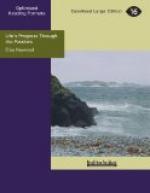We are told indeed of many jealousies, discontents, and quarrels, which have been occasioned by this passion, among those who might otherwise have lived in perfect harmony; and a man or woman, who has the character of being too inquisitive, is shunned as dangerous to society.—But what commendable quality is there that may not be perverted, or what virtue whose extreme does not border on a vice?—Even devotion itself should have its bounds, or it will launch into bigotry and enthusiasm;—love, the most generous and gentle of all the passions, when ill-placed, or unprescribed, degenerates into the very worst;—justice may be pursued till it becomes cruelty;—emulation indulged till it grows up to envy;—frugality to the most sordid avarice; and courage to a brutal rashness;—and so I am ready to allow that curiosity, from whence all the good in us originally arises, may also be productive of the greatest mischiefs, when not, like every other emotion of the soul, kept within its due limits, and suffered to exert itself only on warrantable objects.
It should therefore be the first care of every one to regulate this propensity in himself, as well as of those under whose tuition he may happen to be, whether parents or governors.—Nature, and the writings of learned men, who from time to time have commented on all that has happened in nature, certainly afford sufficient matter to gratify the most enquiring mind, without descending to such mean trifling inquisitions, as can no way improve itself, and may be of prejudice to others.
I have dwelt the longer on this head, because it seems to me, that on the well, or ill direction of that curiosity, which is inherent to us all, depends, in a great measure, the peace and happiness of society.




